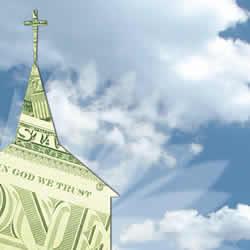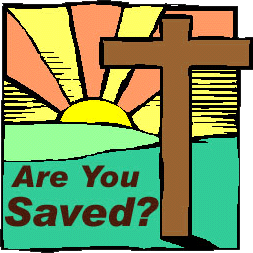 After Pilate has sentenced Jesus to death, he hands him over to the soldiers for crucifixion. In Mel Gibson's movie, The Passion of the Christ, the abuse Jesus endures is depicted as something beyond imagination, more than anyone could endure. When I saw that movie I wondered if Gibson believed that Jesus' suffering had to be beyond comparison so that it would be sufficient to atone for our sins. But that's certainly not what I see in today's reading from Mark. Rather I see a group of soldiers who decide to have a bit of fun with someone arrested as a threat to national security. And the antics they use are not so different from those used by the soldiers holding terror suspects at Abu Ghraib prison in Iraq.
After Pilate has sentenced Jesus to death, he hands him over to the soldiers for crucifixion. In Mel Gibson's movie, The Passion of the Christ, the abuse Jesus endures is depicted as something beyond imagination, more than anyone could endure. When I saw that movie I wondered if Gibson believed that Jesus' suffering had to be beyond comparison so that it would be sufficient to atone for our sins. But that's certainly not what I see in today's reading from Mark. Rather I see a group of soldiers who decide to have a bit of fun with someone arrested as a threat to national security. And the antics they use are not so different from those used by the soldiers holding terror suspects at Abu Ghraib prison in Iraq.When I view this scene, I do not see Jesus enduring superhuman suffering. Rather I see him entering into the all too typical unhumaninty and cruely that humans inflict on one another. Nazi death camps, the killing fields of Southeast Asia, genocide in Serbia, Darfur, Rwanda, and countless other places; the list goes on and on. And though we Americans like to think of ourselves as above such things, Abu Ghraib and our willingness to use torture show how easy it is to justify the very sort of behavior we recoil from when we see Jesus suffer it.
When humans are afraid, they will resort to all sorts of uncivil behaviors. Our fears often evolve into anger and venom. Surely Jesus felt fear as he faced his own torture and death. After all he begged God to "remove this cup from me." But faced with the sort of cruelty and inhumanity that powers so typically use to maintain that power, he never lashed back. Somehow he was able to trust that God was still in control and would vindicate him in the end.
It is admittledly very difficult to employ Jesus' method at the level of national security. Even if I can "turn the other cheek" towards violence done to me, how am I to respond to the innocent suffering of others that I might be able to prevent? Still, we seem to find it all too easy to dismiss Jesus' call to non-violence. In America especially, we embrace guns and "the right to protect ourselves" with scarcely a thought as to how strange that sounds coming from someone who claims to be a follower of Jesus.
I suppose that people will continue to encounter cruelty, torture, and horrible deaths until God's reign fully comes. But for the life of me I can't understand why a great many Christians can so casually embrace and endorse such behavior as long as it is aimed at "the enemy." The enemy; you remember them, the ones Jesus told us to love.
Click here to learn more about the Daily Lectionary.
































